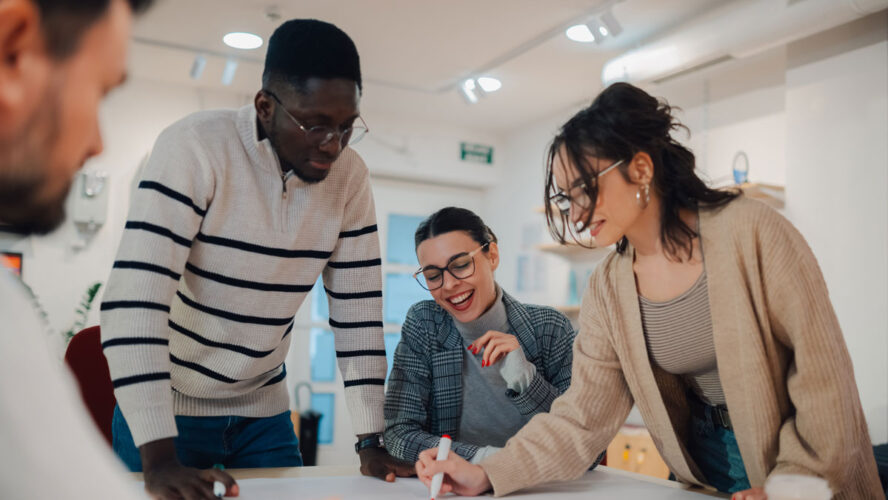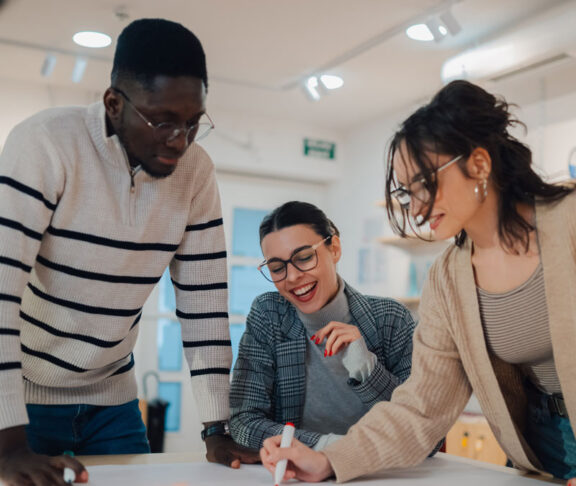
Anni Townend
CoFounder, Collaboration Equation

Lucy Kidd
CoFounder, Collaboration Equation
In today’s AI-augmented workplaces, it’s vital to create a culture of human connection so people can be innovative, creative and do their best work together.
When people work well together, remarkable things are accomplished. However, with the accelerating pace of Gen AI, people are at risk of becoming sidelined as organisations lose focus on the fundamental drivers of human performance.
Connection fuels competitive edge
Companies can stop paying attention to and investing in human skills and behaviours at their peril, say Anni Townend and Lucy Kidd, Cofounders of Collaboration EquationTM. They argue that human connection at work isn’t a ‘nice to have’ — it’s essential for creating happier teams and more productive workplaces, sparking innovation and growing bottom lines.
To help companies achieve a competitive edge in their sector, Anni and Lucy help them find their ‘Collaborative EdgeTM’ — where people are at their most innovative, creative and productive and work best together. This is achieved by developing the mindset and behaviours of ‘curiosity, care and courage’ to build an atmosphere of trust, openness and confidence that, ultimately, inspires team development, effective collaboration and high performance.
Through in-person and virtual workshops,
a strong culture of human connection
developed amongst people and across the business.
Developing the mindset and behaviours of ‘curiosity, care and courage’
“Curiosity is about always being open to learning and asking expansive questions to explore and understand,” says Lucy. “Yet, curiosity on its own isn’t enough. Care is also vital — that involves considering our impact on others and listening deeply to build trust and connection. Finally, courage is having the boldness to co-create and commit to ways of working that drive collective results. We define it as ‘wholeheartedness.’ It’s about being ‘all in’ and willing to give up something for the wider group.”
This is further supported by a recent World Economic Forum Future of Jobs report predicting curiosity, resilience, creative thinking and agility to be core skills for 2030 alongside technological capability.
Example of how teamwork matters in tech
The approach yields results. A recent client was a global business where people had forgotten the art of collaboration. Anni says: “They were all working in their own lanes and behaving like competitors.”
Through in-person and virtual workshops, a strong culture of human connection developed amongst people and across the business. “They were having conversations with each other, working closely together, sharing resources, problem-solving as a group and coaching each other,” says Lucy. “They realised that it wasn’t enough for one of them to succeed. They all had to succeed.”
Naturally, technological skills will be important going forward. “We’re not saying otherwise,” insists Anni. “As technology increases, human connection will matter more than ever in the future workforce.”


